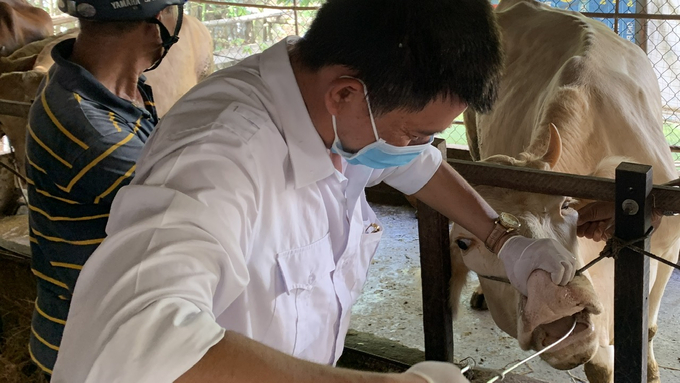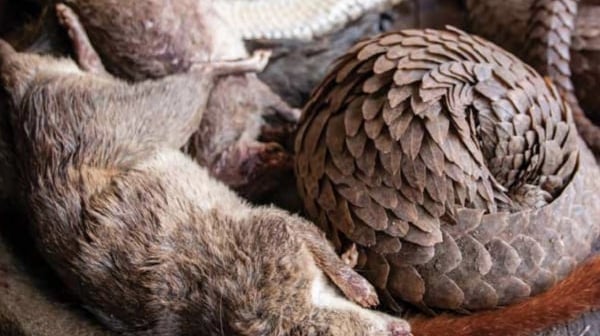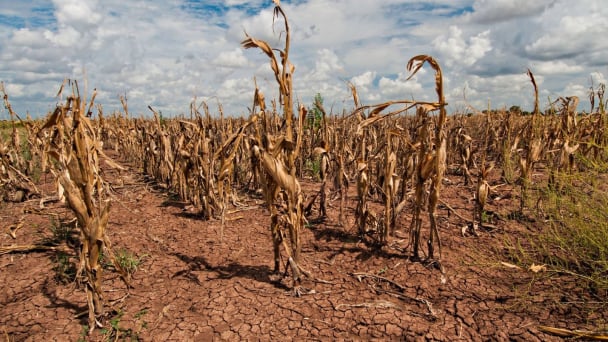May 29, 2025 | 02:50 GMT +7
May 29, 2025 | 02:50 GMT +7
Hotline: 0913.378.918
May 29, 2025 | 02:50 GMT +7
Hotline: 0913.378.918

According to Nguyen Van Long, General Director of the Department of Animal Health, the Vietnamese Government has issued a national plan to prevent and control five major animal diseases. Photo: Tung Dinh.
Currently, five dangerous animal diseases have been prioritized by the Vietnamese government for control through a national plan. These diseases are avian influenza, African swine fever, foot-and-mouth disease, lumpy skin disease, and rabies.
At the workshop on improving animal disease prevention and control in Vietnam, the Department of Animal Health reported that three of these five disease control plans will conclude in 2025: African swine fever, avian influenza, and foot-and-mouth disease.
"It is crucial to develop a new action plan for managing dangerous epidemics, especially as these diseases are expected to evolve unpredictably in 2024," said Director Nguyen Van Long.
Statistics from the first nine months of the year reveal that cases of avian influenza have surged by 2.6 times compared to the same period in 2023. Notably, between early August and September 16, 27 tigers and 3 lions in Dong Nai province died. Subsequent testing by the Central Veterinary Diagnosis Center confirmed that samples from these animals were positive for the A/H5N1 virus.
In terms of rabies, 70 fatalities have been recorded across 32 provinces and cities so far, nearly matching the total of 82 cases for all of 2023. Alarmingly, investigations by the Department of Animal Health found that nearly 50% of suspected rabies samples tested positive for the virus.
Foot-and-mouth disease has also shown a significant increase. Compared to the same period in 2023, outbreaks have risen by 2.7 times, the number of infected animals has increased by 2.68 times, and the total number of deaths and culls has soared by 6.23 times.
Lumpy skin disease, which can be fully prevented with vaccines, has also seen a rise in cases, though the increase has been moderate. Despite distributing over 500,000 doses of vaccine since the beginning of the year, the number of provinces and cities reporting lumpy skin disease has grown from 15 to 18.
Although Vietnam has successfully developed a commercial vaccine for African swine fever, outbreaks and culling have nearly tripled. The northern region has been hit the hardest by these outbreaks.
Several factors have been cited to explain the rise in dangerous livestock diseases. However, the Department of Animal Health identifies the primary issue as the low vaccination rate across localities. Additionally, the unregulated trade of sick or potentially infected animals and the improper management of slaughter and transportation in epidemic zones have further exacerbated the situation.

Local authorities have also not prioritized livestock health management, contributing to the increase in outbreaks early in 2024. Photo: Ho Thao.
The livestock industry plays a vital role in Vietnam’s economy, making disease prevention essential to sustainable development. Infectious diseases threaten not only livestock health but also the circulation of livestock products in the market.
The Department of Animal Health emphasizes that vaccination is the most effective strategy to prevent disease and ensure the sustainable and safe development of the livestock sector.
Moreover, it is crucial to speed up the establishment of disease-free livestock zones. In addition to securing the core zones, local authorities must also develop comprehensive disease prevention plans for surrounding buffer zones, including neighboring districts.
For example, in establishing a disease-free zone for foot-and-mouth disease in Binh Duong province, the veterinary system must implement synchronized measures not only within Binh Duong’s cities, towns, and districts but also across neighboring areas. These include Tan Chau, Hon Quan, Phu Rieng, Bu Gia Map, and Phuoc Long Town (Binh Phuoc); Tuy Duc and Dak R'Lap (Dak Nong); Cat Tien and Tan Phu (Lam Dong); as well as Vinh Cuu, Trang Bom, and Bien Hoa City (Dong Nai).
With Vietnam’s pig population reaching around 30 million – ranking 6th globally – expanding centralized slaughterhouses is also being considered. This is due to the continued prevalence of household-scale livestock farming, which accounts for approximately 30% of production, making it challenging to maintain quality control from farm to table.
The Department of Animal Health, with support from international organizations and collaboration with businesses and farmers, recommends that local authorities conduct regular inspections and actively monitor virus circulation and mutations, particularly avian influenza, in live poultry markets.
"The Department of Animal Health is committed to providing both technical and material support to help localities build and refine epidemiological maps of dangerous livestock and poultry diseases," Director Nguyen Van Long emphasized. "These maps will serve as a foundation for disease prevention efforts and enhance testing capacity across regions."
Translated by Quynh Chi

(VAN) On May 27, La French Tech Vietnam (the French startup and innovation community in Vietnam) held the French Tech Summit Vietnam 2025.
/2025/05/27/4731-2-223159_980.jpg)
(VAN) No votive paper, no styrofoam, no plastic bags, no plastic bottles, and no single-use plastic trays are the key rules tourists should keep in mind when visiting Con Dao.

(VAN) In the fight against plastic pollution, Vietnam has been demonstrating a proactive, pioneering, and active role in addressing the greatest environmental challenge today.

(VAN) The WOAH guidelines provide a vital tool for risk chain analysis, covering the extraction, transportation, consumption, and handling of confiscated wildlife.

(VAN) World Environment Day 2025 is launched by the United Nations Environment Programme (UNEP) with the theme 'Beat Plastic Pollution'.

(VAN) As climate whiplash reshapes yields, experts say data-driven tools and targeted relief are critical to feed America.

(VAN) The alignment in goals and operational direction between the Vietnam Agriculture and Nature Newspaper and Shaanxi Daily opens up promising prospects for journalism and media cooperation.